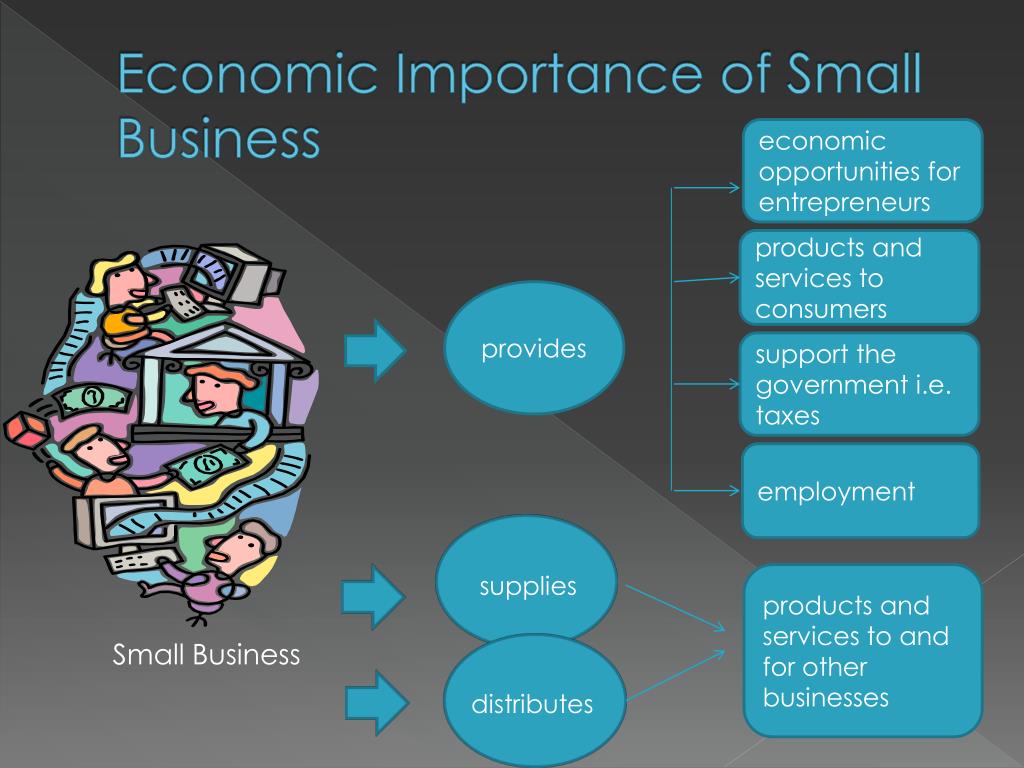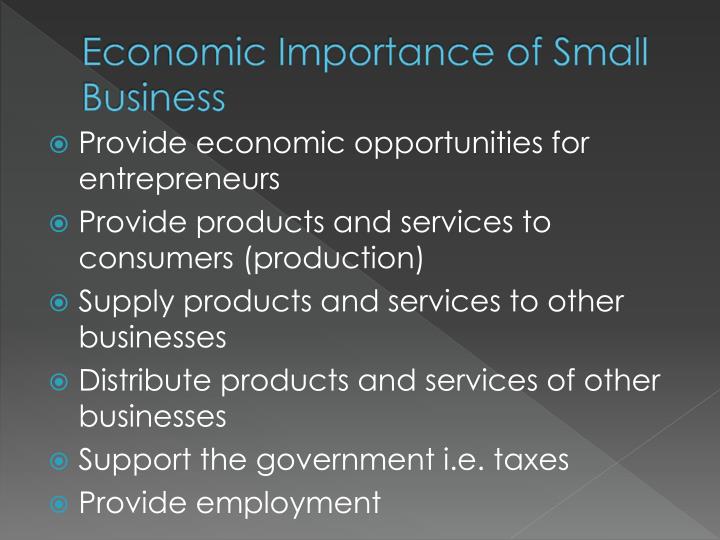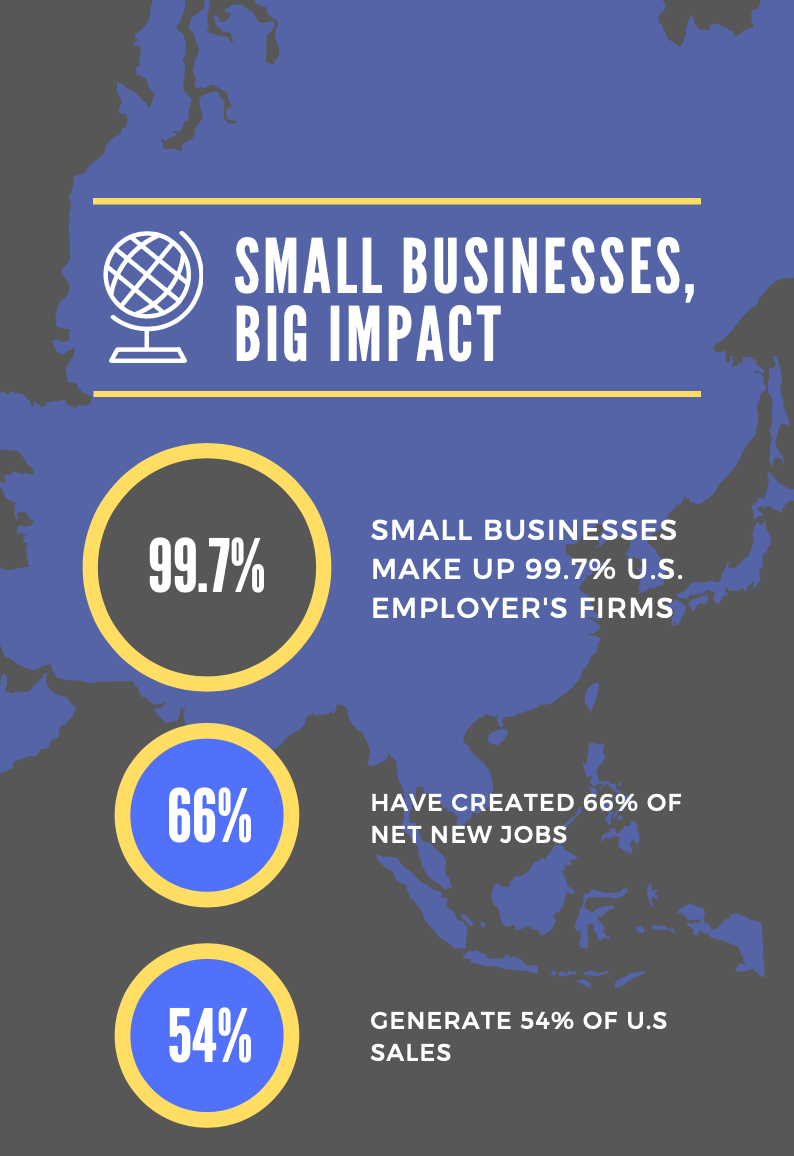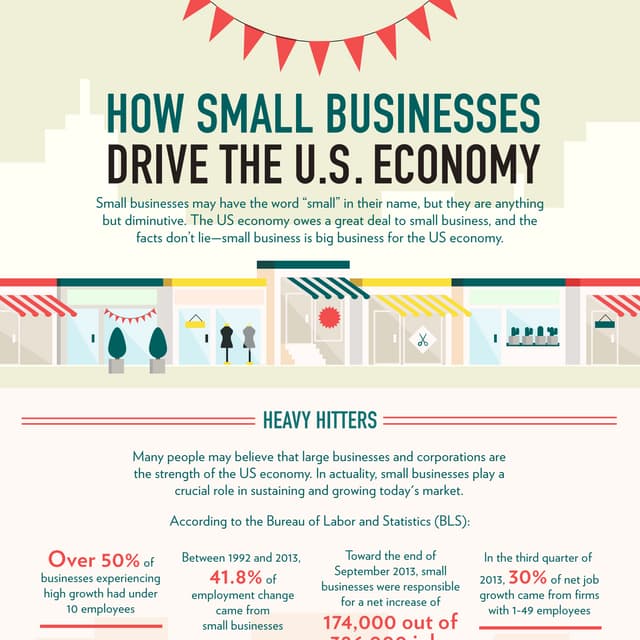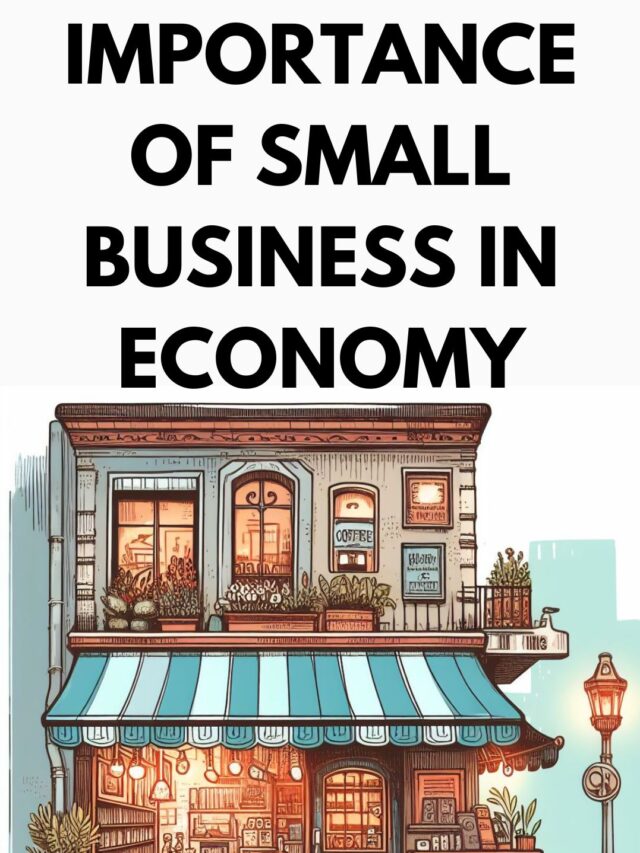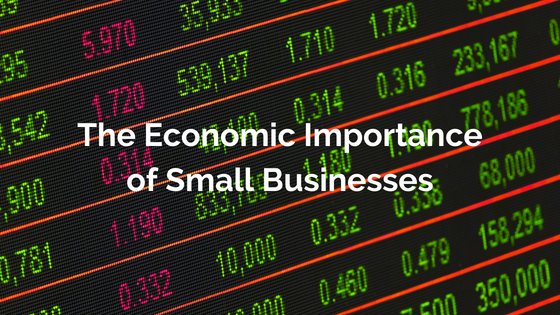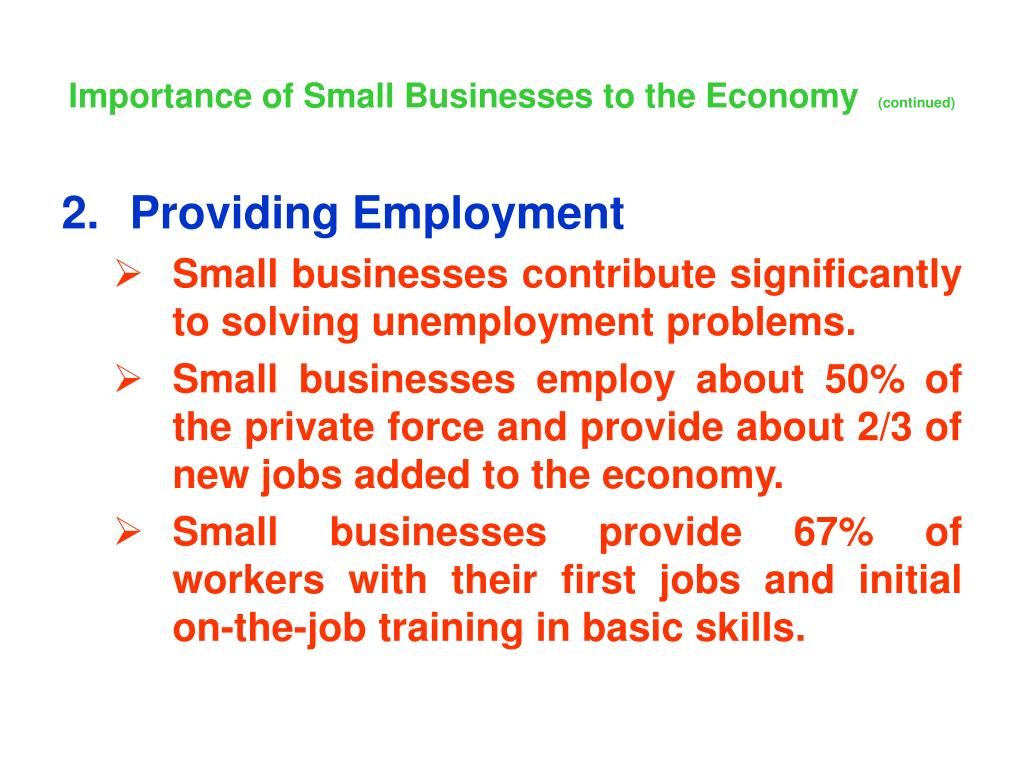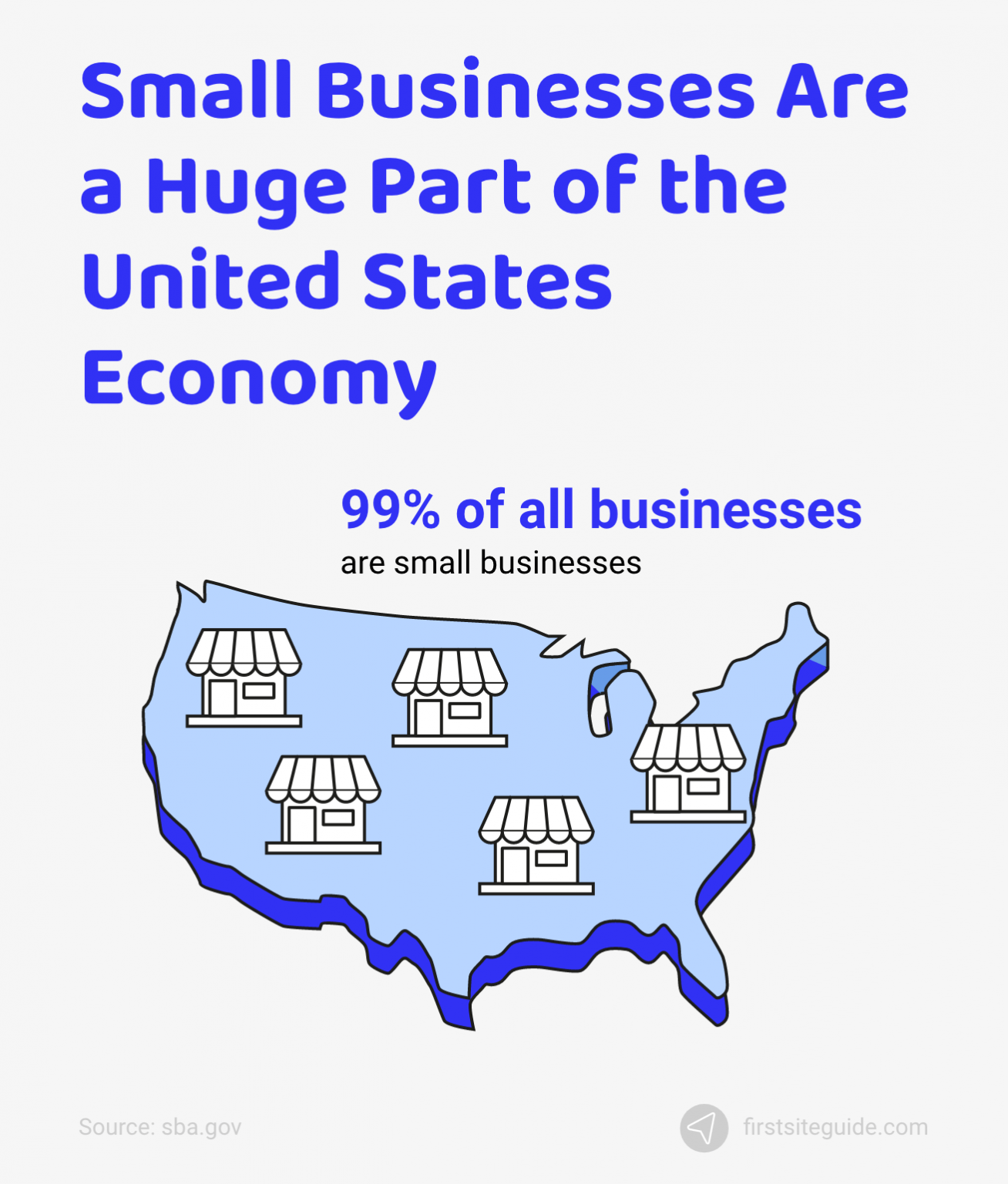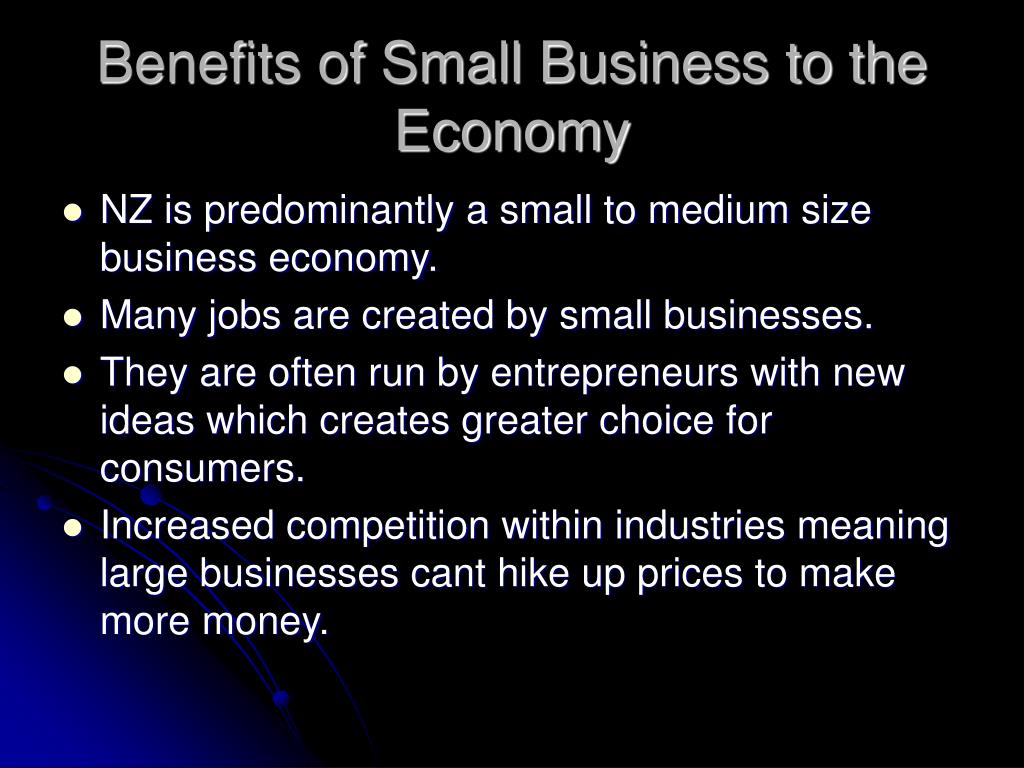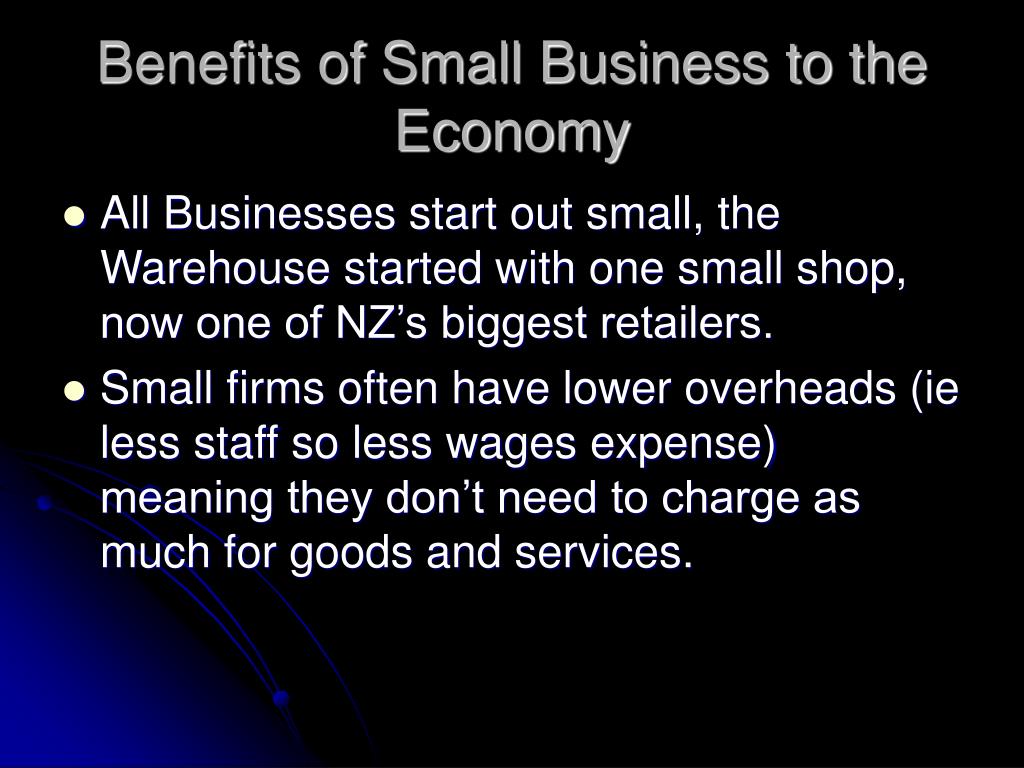Small Businesses Are Important To The Economy Because
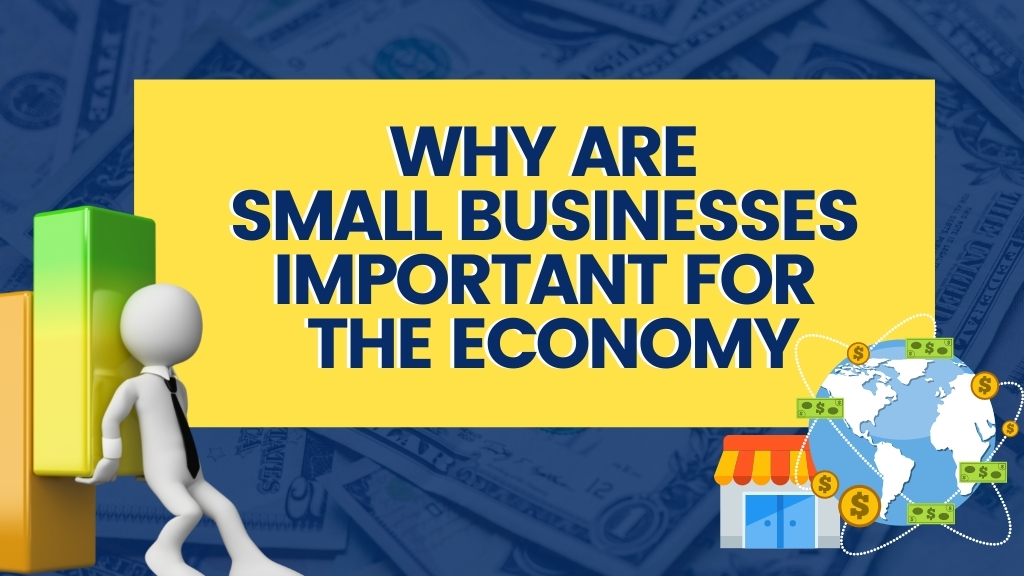
Economic alarm bells are ringing: small businesses, the backbone of Main Street, are facing unprecedented challenges. Their struggles directly threaten the nation's financial stability and future prosperity.
This isn't just about mom-and-pop shops; it's about the engine of job creation, innovation, and community development sputtering to a halt. Understanding the critical role small businesses play is now more vital than ever.
The Undeniable Economic Impact
Small businesses are job creation powerhouses. According to the Small Business Administration (SBA), they create about two out of every three net new jobs in the U.S.
This translates to real people, real families, and real communities benefiting from the opportunities these businesses provide.
Beyond job creation, small businesses are crucial drivers of innovation. They often introduce new products, services, and technologies to the market, pushing larger corporations to adapt and improve.
These innovations frequently stem from a deeper understanding of local needs and a willingness to take risks that larger companies avoid.
Furthermore, small businesses contribute significantly to local economies. They are often deeply rooted in their communities, providing essential services, sponsoring local events, and supporting other local businesses.
This creates a ripple effect, strengthening the entire community fabric.
The Current Crisis: A Perfect Storm
Small businesses are currently facing a barrage of challenges. These challenges can range from inflation, supply chain disruptions, and labor shortages.
Inflation is driving up the cost of goods and services, making it harder for small businesses to compete with larger corporations that have greater purchasing power.
Supply chain disruptions are causing delays and shortages, making it difficult for small businesses to meet customer demand.
Labor shortages are making it difficult for small businesses to find and retain qualified employees, further impacting their ability to operate effectively.
Data Speaks Volumes
A recent report by the National Federation of Independent Business (NFIB) shows that small business optimism remains near historic lows. Many owners are reporting difficulty in finding qualified workers and are struggling to raise prices to keep up with rising costs.
According to a study by Goldman Sachs 10,000 Small Businesses Voices, 73% of small business owners are concerned about the current economic climate.
They indicate feeling that their financial stability and operations are at risk.
What's Next? Urgent Action Needed
The situation demands immediate and decisive action. Policymakers must prioritize policies that support small businesses, such as targeted tax relief, access to affordable capital, and streamlined regulations.
Consumers also play a vital role. Supporting local businesses through purchasing goods and services directly impacts their survival and continued success.
The time to act is now. We must champion the cause of small businesses to secure the future of our economy and communities.
"Small businesses are not small to the people who work there." - Unknown
